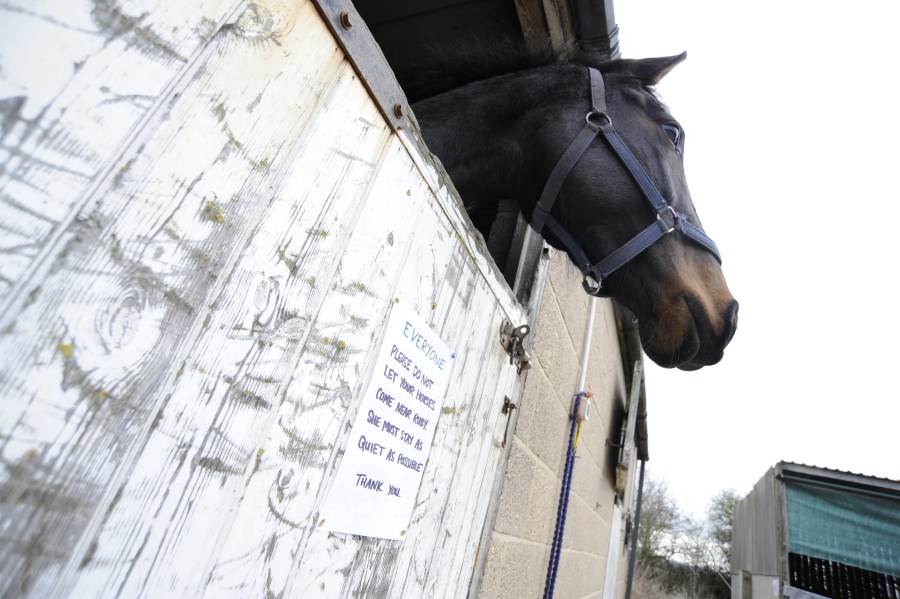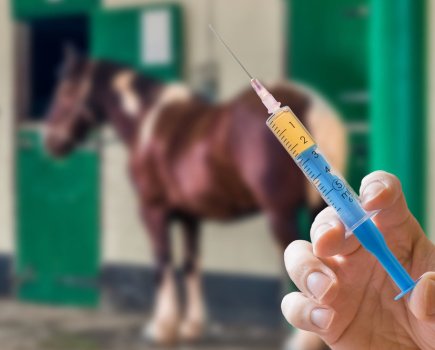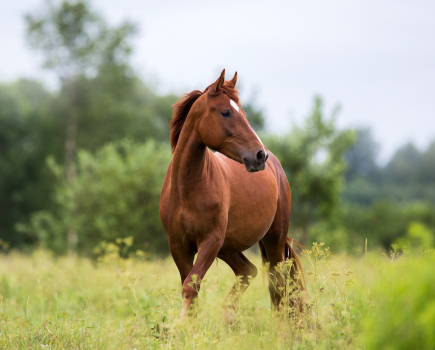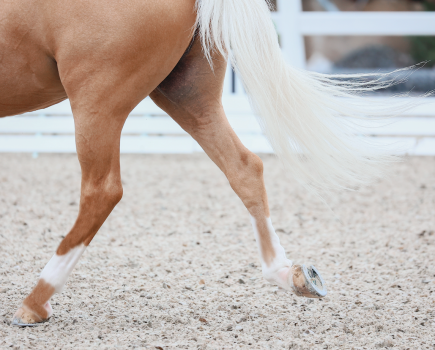Horses are herd animals and the more natural a lifestyle their owners can provide them with, the happier they’ll be. Ideally all horses should have the opportunity to roam freely, graze, shelter, drink fresh water and enjoy social contact with other equines, but in reality there are times when box rest with periods of isolation becomes a necessity.
Box rest may be needed to help your horse recover from illness, reduce the risk of infections, provide protection from injury or simply to avoid adverse weather conditions. Duration can vary from days, to weeks and even months and whilst some horses cope well, others find it extremely stressful, developing physical problems such as respiratory ailments, and behavioural problems such as weaving or cribbing. So how can you help your horse survive box rest?
Fighting frustration
The impact of box rest varies from individual horse to individual horse, but if your horse has previously been turned out for most of the time it may take him a while to adapt. Similarly, if he’s been working hard he may start to weave or box walk in frustration, particularly if he’s predisposed to this kind of behaviour.
Adapting his diet
The lack of grazing means that your horse on box rest will have different nutritional requirements. Seek veterinary or nutritionist advice on how to safely make adjustments and avoid dietary problems such as impaction colic.
Your horse will need plenty of good quality forage, but he doesn’t really need concentrates, so it’s important to adjust his diet accordingly. Try putting hay into smaller mesh nets to reduce the rate at which his forage is consumed, and hang nets in different areas of the stable to keep him occupied for longer. However, feeding from the floor is much more natural for your horse as his respiratory system is adapted to this method, rather than forcing him to eat higher up. If possible at a later stage it may be a good idea to look at providing restricted grazing, creating a small pen that he can move around the field.
Will stable toys help?
A variety of boredom buster toys have been developed to help alleviate behaviour problems in horses. Many inquisitive horses enjoy playing with giant rubber balls or like the challenge of knocking treats from a food toy, but others show little or no interest.
Giving him some company
Moving your horse to a stable where he can view other horses and activity, may be contra-indicated because moving your horse to a stable where he can see other horses out in the field or interacting with each other can be frustrating – a bit like us being shown a nice cake, but not being allowed to eat it. If your horse can see lots of things going on, but can’t participate, it can cause frustration and associated behaviour problems. However, a relatively inexpensive innovation, the stable mirror can help to address many of these frustrations. Studies have shown that providing a horse with a stable mirror can reduce weaving and box walking.
12 ways to help your horse cope with box rest
1. Reduce concentrates and increase the fibre content of your horse’s diet.
2. Consider adding a prebiotic or probiotic supplement to feeds to aid digestion.
3. Hang hay nets in different places around the stable and/or place hay on the ground for more natural feeding.
4. Double netting hay and using nets with smaller holes can reduce the speed at which a horse consumes forage, keeping him occupied for longer.
5. Keep feeds interesting by adding a variety of succulents such as carrots, apples etc.
6. Consider adding a variety of tastes to feeds such as garlic, mint and dried fruit or herbs.
7. Some horses enjoy the sound of a radio playing during the day.
8. Turnips or swedes suspended from a rope can create inexpensive boredom buster toys.
9. Give your horse extra attention every day – grooming, massaging and spending time together.
10. A carefully positioned stable mirror may help your horse to relax.
11. Encourage intake of fluids by soaking hay and/or feeds.
12. Supervise the use of boredom buster toys and limit availability so the horse doesn’t become frustrated or lose interest.









